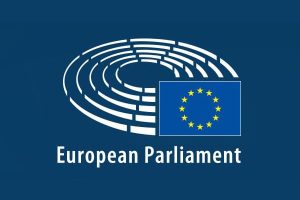The EU’s New Copyright Directive: Uncertainty Abounds
 BRUSSELS – As you’ve no doubt heard, the European Parliament passed its controversial Copyright Directive early last week, in a narrow vote which has been widely panned and bemoaned by critics of the measure.
BRUSSELS – As you’ve no doubt heard, the European Parliament passed its controversial Copyright Directive early last week, in a narrow vote which has been widely panned and bemoaned by critics of the measure.
“Well, it was a nice run while it lasted, but the EU Parliament has just put an end to the open internet,” wrote Techdirt’s Mike Masnick. “This is an inauspicious day and one that the EU will almost certainly come to regret.”
Masnick has plenty of company in his assessment that the EU’s approval of the new Copyright Directive is a dire development for the future of the internet, including quite a few members of the EU Parliament who had lobbied hard to persuade their peers that the Directive is misguided at best – and potentially calamitous at worst.
German MEP Julia Reda, former president of the Young Pirates of Europe and now a part of the Greens/European Free Alliance, characterized the vote as a “dark day for internet freedom.”
Dark day for internet freedom: The @Europarl_EN has rubber-stamped copyright reform including #Article13 and #Article11. MEPs refused to even consider amendments. The results of the final vote: 348 in favor, 274 against #SaveYourInternet pic.twitter.com/8bHaPEEUk3
— Julia Reda (@Senficon) March 26, 2019
Google, which is likely to be heavily impacted by the Directive, was slightly more measured in its response, saying it will “lead to legal uncertainty and will hurt Europe’s creative and digital economies,” while noting that the precise nature of the Directive is still unknown, pending the development and enforcement of new policy by European member states.
“The details matter, and we look forward to working with policy makers, publishers, creators and rights holders as EU member states move to implement these new rules,” Google added in its statement.
Google’s point is an important one: While proclamations of doom for the open internet populate the headlines surrounding the Directive, its precise contours and how they will be enforced remain largely unknown.
Still, assuming the text of the Copyright Directive is interpreted the same way by member states as it has been by members of the legal community, there are some things which can be stated with confidence about the scope and practical effect of the new policies it establishes.
“The primary impact will be on tube site operators located in EU states that implement the directive,” attorney Larry Walters told YNOT. “They could face significant exposure for intellectual property violations based on user-submitted content.”
Walters also noted that the application of the revised copyright laws pending in EU member states may not be limited to sites and users within those states.
“There is also a potential for application of these laws outside the EU, depending on numerous factors,” Walters said, who further observed that “we have already seen substantial impacts of the GDPR on U.S. website operators.”
With so much uncertainty surrounding the practical application of the measures approved as part of the Directive, observers like Walters can only speculate as to how sweeping and impactful its enforcement may be. That said, the speculation includes some potential developments which would prove problematic, especially for online platforms with profit margins which are significantly slimmer than the likes of Google or Facebook.
“Many believe that online platforms will be forced to install content monitoring and filtering devices in order to avoid liability for infringement,” Walters said. “Such tools can result in over-filtering and censorship of free expression online. Even content such as memes could be banned, as they often repurpose copyrighted materials.”
While a great deal about the Copyright Directive remains unknown and subject to the interpretation of individual EU member states, any site or platform which permits end-users to post content would be wise to keep an eye on copyright policy-related news out of the EU.
“It is too soon to evaluate how the directive may be implemented,” Walters said, “but any site accepting user-generated content should follow the developments closely.”












